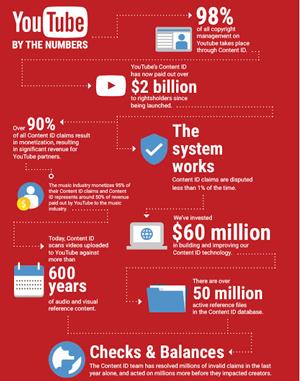by Laurie Sullivan @lauriesullivan, July 13, 2016

Google released its latest piracy policy report Wednesday, but the focus turns to the amount of cash the company divvies out to content creators and artists. It dispels a myth that the company drives searchers to pirated information.
The majority of media-related queries that individuals submit daily only include results with links to legitimate sites, Katie Oyama, senior policy council, wrote in the post.
For problem links that may appear for rarer, long queries that could include the word “free” or “streaming,” Google’s system for processing copyright removal notices handle millions of URLs each day, in less than six hours on average.
When a large number of valid Digital Millennium Copyright Act (DMCA) notices for a site come in, the search ranking algorithms reduce that site in future search results.
Piracy also affects content producers such as advertisers and their agency partners. Google, since 2012, has blacklisted more than 91,000 sites from AdSense for violating policies against copyright infringement, the vast majority caught by AdSense’s screens.
Oyama writes that Google also has been working with other advertisers to craft best practices aimed at raising standards across the online advertising industry in the U.S., U.K., France, Italy, and Asia.
If it’s all about generating revenue for content and rights holders from digital thieves. The BPI, which represents the U.K.’s recording industry doesn’t appear content with the report, dismissing it as “greenwash,” which the BBC defines as an industry term that means to “attack disinformation used by organizations to make out they are more eco-friendly than they actually are.”
In the piracy policy report, Google states that YouTube alone has now generated over $2 billion to rights-holders by monetizing user-uploaded content through Content ID, its rights management system. Google said it invested more than $60 million in technology to stop piracy. And that Content ID now stores more than 50 million reference files.
A inforgraphic explains that 98% of all copyright management on YouTube takes place through Content ID, more than 90% of claims results in monetization. Content ID claims are disputed less than 1% of the time.
The BBC points out that the BPI isn’t the only organization to have issues with the report. The International Federation of Photographic industry describes Content ID as “ineffective.”
MediaPost.com: Search Marketing Daily
(27)